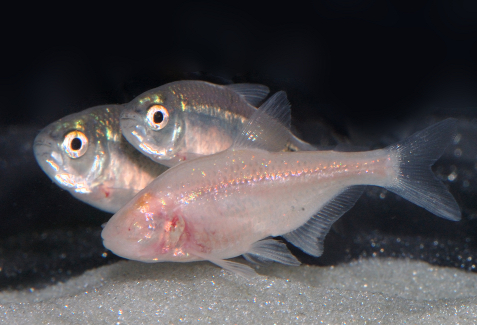 |
Image: Courtesy of Richard Borowsky |
**__Related stories:__*** linkurl:Watching bears sleep;http://www.the-scientist.com/news/display/57992/
[17th February 2011]*linkurl:Hungry flies ok with less sleep;http://www.the-scientist.com/blog/display/57664/
[31st August 2010]*linkurl:Disappearing Before Dawn;http://www.the-scientist.com/article/display/55522/
[1st April 2009]













